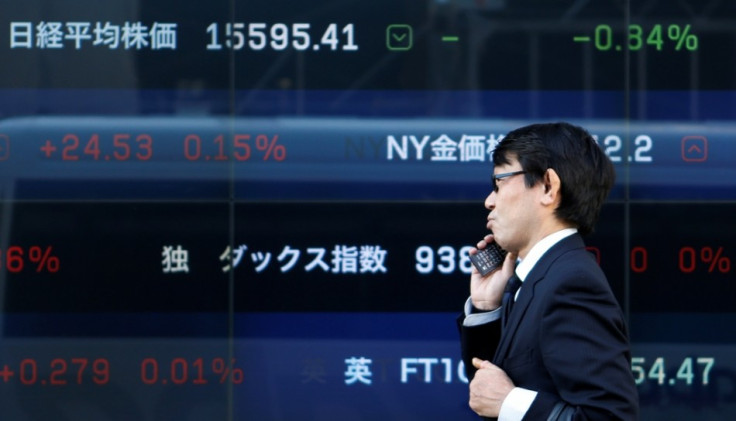Asian Markets Weekly Review: Bourses Outside Australia End Higher

Asian stock markets outside Australia finished the week higher, India's BSE Sensex leading the pack and Australia's ASX 200 trailing.
Regional markets outside China traded higher at the beginning of the week after the deal to ease economic sanctions on Iran pulled down oil prices.
China, Japan, India and South Korea rely heavily on oil imports to meet domestic energy demand.
Markets witnessed mixed trade on 26 November following a lacklustre handover from Wall Street, where players digested downbeat property market data.
The National Association of Realtors reported that signed contracts to buy existing homes fell for a fifth consecutive month in October.
The so-called pending home sales fell 0.6% month-on-month and dropped 1.6% on an annual basis in October.
Markets witnessed mixed trade on 27 November as investors booked profits amid rising regional political tensions. Most markets later traded higher and followed an upbeat handover from Wall Street.
The Japanese Nikkei finished at a six-year high on the back of a weak Japanese yen.
In Shanghai, the markets were also supported by comments from central bank governor Zhou Xiaochuan who said that China would accelerate reforms to liberalise interest rates and achieve capital account convertibility.
Asian markets witnessed mixed trade on the final trading day amid lack of cues. Financial markets in the US were shut the previous day for the Thanksgiving holiday.
Indian shares finished higher ahead of the release of second-quarter growth data
The Indian economy expanded by 4.8% in the three months to 30 September, against a 4.4% expansion rate in the preceding quarter, government data showed.
India's industrial and agricultural output were higher during the quarter, while exports bounced back. The readings suggested that Asia's third-largest economy has bottomed out.
Elsewhere, Chinese equities traded higher ahead of the release of November's manufacturing purchasing managers' index (PMI) data due on 1 December.
South Korean equities ended just below the flatline despite upbeat economic data. Government data showed industrial output rose 1.8% in October, bouncing back from September's sharp decline.
Earlier, Japan's benchmark index ended lower despite positive economic data.
Japanese consumer inflation rose to a five-year high and factory output increased for a second consecutive month in October, suggesting that government and central bank efforts to revive the world's third-largest economy were bearing fruit.
Market Movements
India's S&P BSE Sensex finished 2.77% higher at 20,791.93.
South Korea's Kospi finished 1.74% higher at 2,044.87.
The Japanese Nikkei index ended 1.71% higher at 15,661.87.
The Shanghai Composite index ended 1.65% higher at 2,220.50.
Hong Kong's Hang Seng ended 0.63% higher at 23,881.29.
Australia's S&P/ASX 200 finished 0.45% lower at 5,320.00.
The Week Ahead
Market participants will be tracking US Federal Reserve chief Ben Bernanke's speech. His comments are expected to throw more light on the health of the world's leading economy.
China will release November's manufacturing and non-manufacturing purchasing managers' index (PMI) data.
Asia-focused bank HSBC will release its own set of China manufacturing and services PMI figures for the month of November.
Japan will put out third-quarter capital spending data. The government will also release data highlighting foreign investments in Japanese equities and bonds.
Australia will release third-quarter GDP data.
The Reserve Bank of Australia will announce its interest rate decision and follow it up with a rate statement.
Australia will also put out retail sales data for November alongside building permits and trade balance data for October.
© Copyright IBTimes 2025. All rights reserved.






















